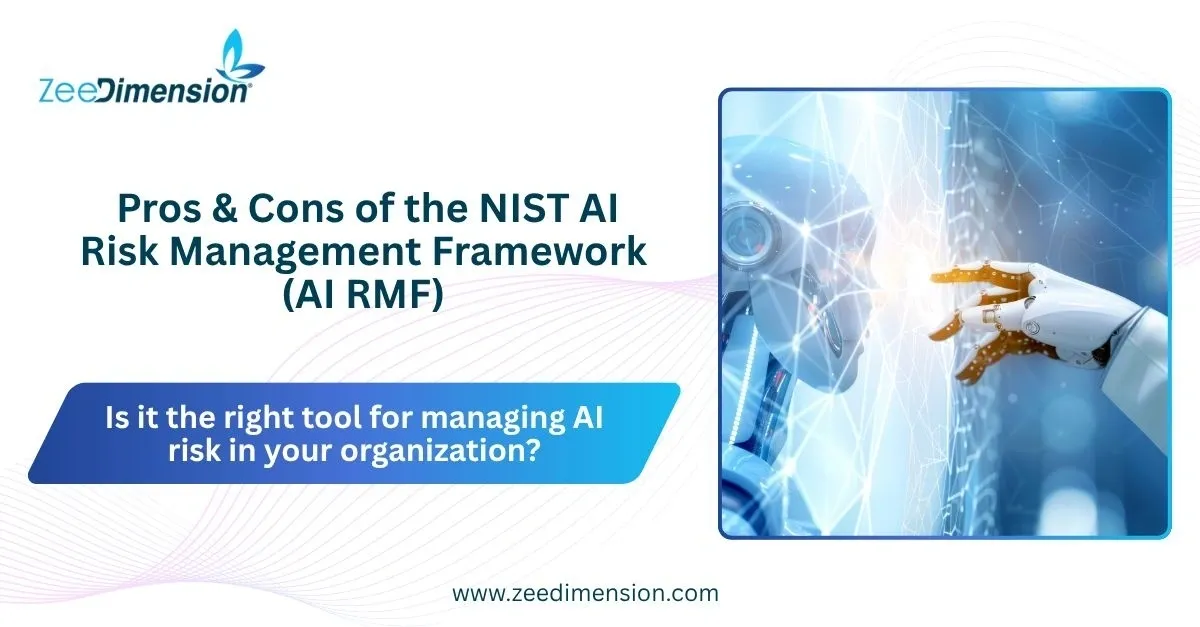
Is it the right tool for managing AI risk in your organization?
What is the NIST AI RMF?
A voluntary U.S. framework designed to help organizations manage AI risks through:
-
Governance
-
Mapping
-
Measurement
-
Management
Not a law, but fast becoming an industry standard.
Pros #1 – Lifecycle Coverage
The RMF covers the entire AI lifecycle—from design to deployment to monitoring.
You’re not just building AI—you’re building it responsibly.
Pros #2 – Built for Trust
It helps you design AI that people can trust—clear, fair, secure, and respectful of privacy.
Pros #3 – Flexible & Scalable
Whether you’re a startup or an enterprise, the RMF adapts to your size, sector, and maturity level.
Pros #4 – Interdisciplinary by Design
The framework encourages teamwork between:
-
Data Scientists
-
Risk Officers
-
Compliance Teams
-
Business Leaders
AI risk is a shared responsibility.
Pros #5 – Works Worldwide
It lines up well with global rules and standards, making it easier for companies to use AI responsibly across different countries.
Aligns with:
-
ISO/IEC 42001
-
EU AI Act
-
OECD AI Principles
Great for companies working across borders.
But it’s not perfect…
Let’s talk about the cons.
Con #1 – Not Legally Enforceable
It’s voluntary.
That means adoption may lack depth unless driven by real accountability.
Con #2 – High-Level Guidance
It explains what to do…
But not always how to do it.
More tooling and operational clarity are still needed.
Con #3 – Resource Heavy for Small Teams
Even though it’s flexible, full implementation may be a stretch for:
-
Small companies
-
Budget-constrained orgs
-
Teams without AI governance expertise
Con #4 – Still Maturing
The framework is new and evolving.
Some areas—like Generative AI or autonomous systems—still need deeper treatment.
Con #5 – Lacks Industry-Specific Playbooks
While broad, it doesn’t offer tailored examples for:
-
Finance
-
Defense
-
Transportation
-
Healthcare
Final Thought:
The NIST AI RMF is a strong foundation for AI governance.
But it’s not a silver bullet.
Use it as a guide—not a substitute for legal compliance or technical audits.







